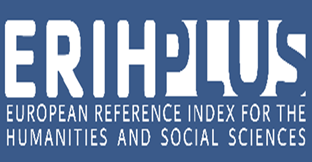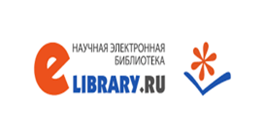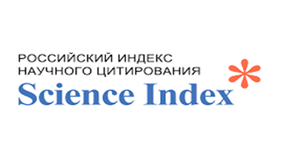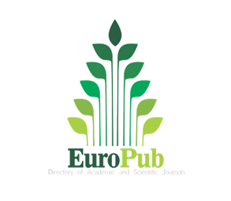Common motifs in the «Kultegin», «Bilge Kagan» and «Tonykok» poems: the image of the ancient Turkic worldview
Views: 422 / PDF downloads: 616
DOI:
https://doi.org/10.32523/2664-5157-2022-3-58-70Keywords:
old Turkic worldview, personalities, historical facts, plot, monologue, dialogueAbstract
The written monuments of «Kultegin», «Bilge Kagan», «Tonykok» (VIII-IX centuries)
describe the worldview, beliefs and customs of the ancient Turks, the hard time they experienced
and the role of individuals in building a strong state. The concept of «Tengri» takes a special place in
defining the ancient Turkic worldview in historical and genealogical poems. Blessed Tengri gave them
a special energy, fighting spirit in establishing a great Turkic state. Interstate diplomacy, victorious
campaigns, special merits of individuals in strengthening the state and their passing away, mourning
their loss at the national level, beliefs and customs, habitat, and their attitude to nature are depicted.
The article analyzes the microconceptions «Tengri», «state», «kagan», «batyr», «Akylgey dana», «unity
of the country», «aruak» and others on the basis of plot connections. The complex nature of time, the
strength of the spirit in preserving the unity of the country, the ideology of the struggle against the
enemy state and other features are analyzed, the features of the ancient Turkic concept of «peace»
are considered. In the poem «Bilge Kagan» and the poem «Kultegin» similarities of author’s signature,
views, campaigns and common inhabitance can be observed. One of the main features manifested in
the poem «Bilge Kagan» is respect for the ties between ancestors, brothers and sisters. In the ancient
Turkic tradition-the rite of veneration and veneration of the aruak. The poem «Tonykok» describes
the historical stages of the formation of the Turkic khaganate as a state. In the poem, Tonykok
is described not only as an adviser, but also as a hero and commander of an army who made an
invaluable contribution to the formation of the Turkic Khaganate as a strong state. The poem has an
autobiographical, historical and genealogical character.
Downloads
Reference
Antologiya hudozhestvennyh konceptov russkoj literatury XIX veka. red. I avtor-sost. T.I. Vasil’eva, N.L. Karpicheva, V.V. Curkan [Anthology of artistic concepts of Russian literature of the twentieth century. ed. and the author is comp. T.I. Vasilyeva, N.L. Karpicheva, V.V. Tsurkan]. 2013. Moscow: Flinta. 356 p. [in Russian].
Askoldov S.A., 1997. Koncept i slovo [Concept and word]. Russkaya slovesnost’. Ot teorii slovesnosti k strukture teksta. Antologiya. Pod obshchej redakciej d-ra filol. nauk prof. V.P. Neroznaka [Russian literature. From the theory of literature to the structure of the text. Anthology]. Moscow: Academia. P. 267-279. [in Russian].
Adebi zhadіgerler. Zhiyrma tomdyq. 1-t.: Kone dauіrdegі adebi eskertkіshter. Qurast.: Sh.Ahmetuly, A. Alіbekuly, N. Bazylhan, S. Qorabaj, Q. Oryngali, Q. Sartqozhauly [Literary relics. Twenty volumes. Vol. 1: literary monuments of antiquity. Comp. Sh.Akhmetuly, A.Alibekuly, N.Bazylkhan, S.Korabay, K.Oryngali, K.Sartkozhauly]. 2007. Almaty: Tajmas baspa ujі. 504 p. [in Kazakh].
Gumilev L., 1994. Kone turіkter. Aud. A. Zhumabaev. P. Bejsenov [Ancient Turks. Translated by A.Zhumabayev. P.Beisenov]. Almaty: Bіlіm. 480 p. [in Kazakh].
Zusman V.G., 2003. Social’nye i gumanitarnye nauki. Otechestvennaya i zarubezhnaya literatura[Social and Human Sciences. Domestic and Foreign Literature]. Moscow: Institut nauchnoj informacii po obshchestvennym naukam. No4. P. 61-67. [in Russian].
Qazaqstan Respublikasyndagy memlekettіk-konfessiyalyqqarym-qatynastar [State-confessional relations in the Republic of Kazakhstan]. «Dіntanu negіzderі» panіnіn oqytushylaryna arnalgan praktikalyq komekshі qural.qurast. Ibraev E.E. [Practical auxiliary tool for teachers of the discipline»fundamentals of Religious Studies». comp. E. Ibraev]. 2014. Astana: GZTO. 140 p. [in Kazakh].
Miller L.V., 2000. Hudozhestvennyj koncept kak smyslovaya i esteticheskaya kategoriya [Artistic concept as a semantic and aesthetic category]. Mir russkogo slova. Nauchno-metodicheskij illyustrirovannyj zhurnal [The world of the Russian word. Scientific and methodological illustrated journal]. No4. P. 39-45. [in Russian].
Mihailova V.G., 2001. Dialog i koncept v literature: literatura i muzyka [Dialogue and concept in literature: literature and music]. Nizhniy Novgorod: Dekom. 168 p. [in Russian].
Namazshamova S., 27 mamyr 2022. Geometrge kenіstіktіn bar ekenіn daleldeudіnqazhetі zhoq [Geometry does not need to prove that space exists]. Qazaqadebietі. [in Kazakh].
Omіraliev Q., 2014. Qazaq tіl bіlіmіnіn maselelerі.Qurast.: f.g.d. G. Anes zhane Zh.Q. Ibraeva [Problems of Kazakh linguistics. Comp. G.Anes, Zh.Ibraeva]. Almaty: Abzal-Aj baspasy. 640 p. [in Kazakh].
Sartqozhauly Q., 2021. Bajyrgy turkіlerdіn dunietanymy [Worldview of the indigenous Turks]. Almaty: QR BzhGM QazaqUlttyqqyzdar pedagogikalyq universitetі. [in Kazakh].
Sayasi tusіndіrme sozdіk. Qurast. avt. E. Sairov zh. t.b. [Political Explanatory Dictionary. Comp. E.Sairov and ext.], 2007. Almaty: Zhujelі zertteuler instituty. 616 p. [in Kazakh].
Tarasova I.A., 2010. Hudozhestvennyj koncept: dialog lingvistiki i literaturovedeniya [Artistic concept: a dialogue of linguistics and literary studies]. Lingvistika. Vestnik Nizhegorodskogo universiteta im. N.I. Lobachevskogo [Linguistics. Bulletin of the Nizhny Novgorod University named after N.I. Lobachevsky]. No4(2). P. 742-745. [in Russian].
Tіl bіlіmіndegі «koncept» ugymy [The concept of «concept» in linguistics]. Avaiable at: URL:https://melimde.com/til-bilimindegi-koncept-fimi-orindafan-docent-dosova-a-t.html. [in Kazakh].
Shaimerdinova N.G., 2009. Reprezentaciya v yazyke drevnetyurkskoj kartiny mira [Representation in the language of the ancient Turkic picture of the world]. Astana: Arman-PV. 252 p. [in Russian].
Downloads
Published
How to Cite
Issue
Section
License
Copyright (c) 2022 Turkic Studies Journals

This work is licensed under a Creative Commons Attribution-NonCommercial 4.0 International License.
























